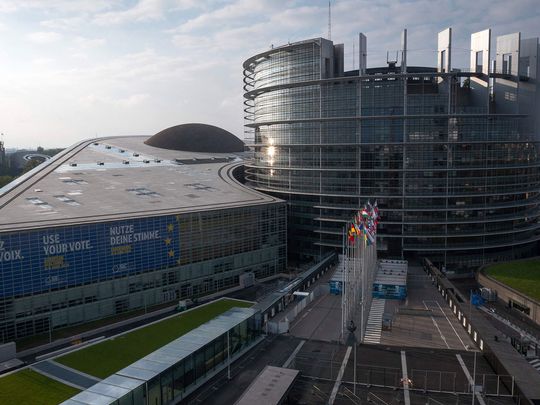
From June 6-9, 2024, over 400 million people across 27 EU member states will elect 720 members to the European Parliament (EP). These elections, occurring in a post-Brexit, post-pandemic, and geopolitically critical era, will significantly shape EU policies on crucial issues such as security, climate change, and migration. However, an alarming incident — the attempted assassination of Slovakia’s populist Prime Minister Robert Fico — has underscored the fragile state of political stability in Europe.
This assassination attempt on Fico is a stark reminder of the escalating political polarisation in Europe. Far-right parties are gaining dominance across EU capitals, influencing national and European politics. In 2023, far-right successes included Geert Wilders’ Freedom Party in the Netherlands and the National Rally’s support for a regressive immigration bill in France.
Predictions indicate a rightward shift in the EP following the June 2024 elections, with significant gains for the populist right Identity and Democracy (ID) group and the European Conservatives and Reformists (ECR). Traditional centrist groups like the European People’s Party (EPP) and Progressive Alliance of Socialists and Democrats (S & D) are expected to lose seats, leading to increased fragmentation.
Anti-establishment parties
The right-wing surge could impact the appointment of the next Commission President, with more negotiations needed to secure a majority. This may also lead to a normalisation of far-right parties within mainstream politics. Nationally, a strong showing for far-right parties could boost their momentum in upcoming elections, potentially leading to more right-wing leaders in power.
This shift is also likely to affect EU policies, particularly on the Green Deal, migration, and rule of law, pushing for more restrictive and nationalist measures. National politics in countries like Austria, France, Germany, Italy, Poland, and Sweden will also be influenced by these trends, with potential gains for anti-establishment parties.
One of the most affected areas could be the EU’s climate efforts. The Fit for 55 policy package, aiming to reduce carbon emissions by 55% by 2030, may face substantial resistance. Right-wing parties have already capitalised on the public’s concern over the economic impact of climate policies, framing them as too burdensome.
A stronger contingent of ECR and ID MEPs, alongside an already sceptical EPP, could lead to the rollback or dilution of critical environmental measures.
The EU’s approach to migration has been closely aligned with right-wing positions since the 2015 migrant crisis. The increased presence of right-wing MEPs is unlikely to change the focus on stringent border controls and agreements with third countries to curb migration flows. However, the implementation of the New Migration and Asylum Pact may become more challenging, especially given the opposition from countries like Hungary and Poland to intra-EU solidarity measures.
The EU’s efforts to uphold the rule of law in member states where it is under threat could also be weakened. A stronger right-wing presence in the EP might embolden national governments to resist EU sanctions or interventions. This shift could exacerbate existing challenges, as seen in the past EP’s policy vis-a-vis Viktor Orbán’s Hungary.
EU-wide decision-making
Beyond the EP, the elections are likely to boost right-wing parties in national contexts, potentially leading to more right-wing leaders in power. Countries like Austria, Belgium, and Croatia could see significant far-right victories in upcoming national elections.
This shift would not only influence national policies but also alter the balance of power within the European Council, affecting EU-wide decision-making processes.
The Russia-Ukraine war, ongoing for more than two years, has reignited fears of geopolitical instability in Europe, reminiscent of Cold War tensions. The European Parliament election results are unlikely to immediately undermine support for Ukraine, but a larger right-wing influence could slow down discussions on necessary institutional reforms for EU enlargement. At least nine countries, including Ukraine, are potential candidates to join the EU.
Threat to European project
Right-wing populist forces are expected to resist giving up national vetoes or increasing budget contributions, making it difficult to advance integration efforts. In 2014, the European Parliament passed a resolution to support the recognition of Palestine as an independent state, but only nine out of 27 member states have recognised Palestine as a state.
The European project, envisioned as a beacon of unity, peace, and economic cooperation, has faced numerous challenges since its inception. Today, however, it is threatened by political fragmentation, economic disparities, and a rise in nationalism. Economic disparities between member states pose another significant threat to the European project.
The June 2024 European elections are poised to bring about significant changes, impacting key policy areas such as climate action, migration, security and the rule of law. While the grand coalition may retain a majority, the increased presence of right-wing MEPs will pressure mainstream parties to shift their positions.
Progressive policymakers need to craft compelling narratives to counter the far-right’s influence and address voters’ economic and security concerns, ensuring the EU continues to uphold its values and commitments in the face of this political shift.









